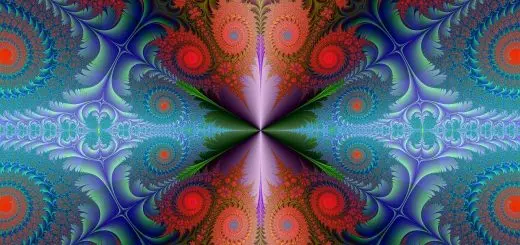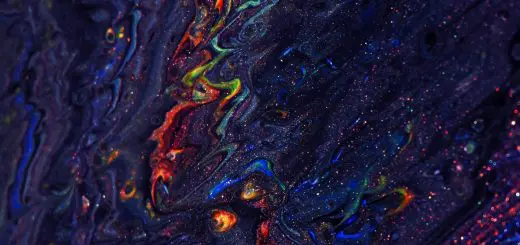Dionysus: God of Wine, Ecstasy, and Revelry

Looking for more amazing products? Check out our online store and explore our collection here! Happy shopping!
Before diving in, please note: This post is for informational purposes only. If you’d like to know more about how we approach topics, feel free to check out our friendly Disclaimer Page.
Hey there, amazing readers! 
We’re committed to delivering quality posts, and your support (even just sticking around despite the ads) means everything to us. So, bear with us, and thanks for helping us keep the good vibes rolling. Now, on to the fun stuff!
TRANSLATE BUTTON AT THE END OF THE ARTICLE
Dionysus: God of Wine, Ecstasy, and Revelry
Introduction to Dionysus, the Greek God of Wine
Dionysus, also known as Bacchus in Roman mythology, is a prominent figure in Greek mythology and one of the twelve Olympian gods.
He is primarily associated with wine, ecstasy, and revelry.
Dionysus is depicted as a youthful and effeminate god, often accompanied by a procession of satyrs, maenads, and nymphs.
Known for his wild and unpredictable nature, Dionysus represents the dualities of ecstasy and madness, civilization and wildness.
Dionysus: His Role in Ancient Greek Mythology
In ancient Greek mythology, Dionysus played a significant role as the god of wine and associated festivities.
He was believed to bring pleasure, joy, and liberation through the consumption of wine.
Dionysus was seen as a patron of theatre, art, and poetry, inspiring creativity and emotional release.
As the god of fertility, he was also associated with the growth of vines and the abundance of harvests.
Dionysus was considered a transformative deity, capable of bringing both blessings and curses.
The Symbolism of Wine in the Worship of Dionysus
Wine held great symbolic significance in the worship of Dionysus.
It represented the life-giving force of the god and the divine ecstasy experienced by his followers.
Wine was believed to dissolve inhibitions and connect mortals with the divine realm.
This transformative power of wine was seen as a way to escape the constraints of everyday life and access a state of divine ecstasy.
The vine, which produced the sacred drink, was also associated with rebirth and regeneration, reflecting Dionysus’ role as a fertility deity.
The Mythological Birth and Childhood of Dionysus
The birth of Dionysus is surrounded by myth and legend.
According to one myth, his mother Semele, a mortal woman, was impregnated by Zeus, the king of the gods.
However, Semele’s mortal form could not withstand the full glory of Zeus, and she perished.
Zeus saved the unborn child and sewed him into his thigh until Dionysus was ready to be born.
Dionysus was later raised by nymphs and satyrs, who taught him the secrets of winemaking and revelry.
This myth emphasized Dionysus’ divine status and his connection to both the mortal and immortal realms.
Dionysus: The God Who Brings Ecstasy and Madness
Dionysus was known for his ability to induce ecstasy and madness in his followers.
The term ‘ecstasy’ comes from the Greek word ‘ekstasis,’ meaning a state of being outside oneself.
The worship of Dionysus often involved frenzied dances, wild celebrations, and the consumption of wine, which allowed his followers to transcend their ordinary selves and enter a state of divine communion.
However, this ecstasy could also lead to madness and violence, as exemplified by the Bacchae, a group of women who followed Dionysus and engaged in orgiastic rituals.
Dionysian Festivals: Celebrating the God of Revelry
The worship of Dionysus was marked by various festivals and celebrations throughout ancient Greece.
The most famous of these festivals was the Dionysia, which took place in Athens and included theatrical performances, processions, and competitions.
During the festival, tragedies, comedies, and satyr plays were performed, often exploring themes of Dionysus’ divine nature and the human condition.
Another important festival was the Anthesteria, a three-day celebration in Athens that honored the arrival of new wine.
These festivals were an essential aspect of communal life, allowing the Greeks to come together in revelry and pay homage to their beloved god.
The Cult of Dionysus: Worship and Rituals
The worship of Dionysus involved a diverse range of rituals and practices.
Explore the Path to Spirituality and Enlightenment – Start Here.
His followers, known as Bacchae or Maenads, were predominantly women who engaged in ecstatic rituals, including dancing, singing, and drinking wine.
During these rituals, the Bacchae would enter a state of trance, believed to be possession by Dionysus himself.
They would tear apart live animals with their bare hands and consume the raw flesh, symbolizing the god’s association with both life and death.
These rituals were seen as a way to commune with the divine and experience the transformative power of Dionysus.
Dionysus in Art: Depictions and Symbolism
Dionysus is a frequently depicted figure in ancient Greek art.
He is commonly portrayed as a youthful and androgynous god, often wearing a crown of ivy leaves and carrying a thyrsus, a staff entwined with ivy and topped with a pinecone.
Dionysus is also often accompanied by a retinue of satyrs, creatures with human bodies and goat-like features, and maenads, wild female devotees.
These artistic representations emphasize Dionysus’ association with wine, fertility, and wild nature.
His presence in art reflects the importance of his cult and the desire to capture his captivating and enigmatic essence.
Dionysus’ Influence on Greek Theatre and Tragedy
Dionysus had a profound influence on Greek theatre, particularly in the development of tragedy.
The ancient Greeks believed that theatre was a sacred art form and a means to honor the gods.
Dionysus was considered the patron of theatre, inspiring playwrights, actors, and audiences alike.
Tragedies often explored themes of divine intervention, human suffering, and the struggle between order and chaos, echoing the duality embodied by Dionysus himself.
The presence of the chorus, a group of performers who sang and danced, was reminiscent of the Bacchic rituals associated with the god.
Dionysus’ influence on Greek theatre ensured his enduring legacy in the realm of art and performance.
The Bacchae: The Most Famous Play About Dionysus
The Bacchae, written by the ancient Greek playwright Euripides, is perhaps the most famous play about Dionysus.
The tragedy tells the story of King Pentheus, who resists the worship of Dionysus and attempts to suppress the Bacchic rituals.
Dionysus, disguised as a mortal, lures Pentheus into the mountains where the Bacchae reside.
The play explores themes of divine punishment, the destructive power of denial, and the consequences of resisting the god’s influence.
The Bacchae serves as a cautionary tale against hubris and a reminder of the transformative and often destructive nature of Dionysus’ power.
The Legacy of Dionysus: Influence on Modern Culture
Dionysus’ influence can still be seen in modern culture.
His association with wine and revelry has persisted throughout history, with wine remaining a symbol of celebration and pleasure.
The concept of ecstasy, as a state of being outside oneself, continues to inspire artists, musicians, and performers to push boundaries and explore new realms of creativity.
Dionysus’ connection to both madness and divine inspiration has found resonance in psychology and philosophy, as scholars explore the transformative effects of altered states of consciousness.
In many ways, Dionysus represents the enduring human desire for liberation, ecstatic experiences, and the celebration of life’s pleasures.
Conclusion
Dionysus, the Greek god of wine, ecstasy, and revelry, played a significant role in ancient Greek mythology and continues to captivate the imagination today.
His association with wine, fertility, and wild nature made him a beloved deity, worshipped through various festivals and rituals.
Dionysus’ influence extended beyond religion, shaping Greek theatre and tragedy, as well as leaving a lasting impact on art and culture.
His dual nature as a bringer of ecstasy and madness remains a powerful symbol, reminding us of the transformative power of both pleasure and madness.
Dionysus’ legacy lives on, continuing to inspire and intrigue those who seek liberation and the celebration of life’s joys.

The Enlightenment Journey is a remarkable collection of writings authored by a distinguished group of experts in the fields of spirituality, new age, and esoteric knowledge.
This anthology features a diverse assembly of well-experienced authors who bring their profound insights and credible perspectives to the forefront.
Each contributor possesses a wealth of knowledge and wisdom, making them authorities in their respective domains.
Together, they offer readers a transformative journey into the realms of spiritual growth, self-discovery, and esoteric enlightenment.
The Enlightenment Journey is a testament to the collective expertise of these luminaries, providing readers with a rich tapestry of ideas and information to illuminate their spiritual path.
Our Diverse Expertise
While our primary focus is on spirituality and esotericism, we are equally passionate about exploring a wide range of other topics and niches 

To ensure we provide the most accurate and valuable insights, we collaborate with trusted experts in their respective domains 
Our blog originally focused on spirituality and metaphysics, but we’ve since expanded to cover a wide range of niches. Don’t worry—we continue to publish a lot of articles on spirituality! Frequently visit our blog to explore our diverse content and stay tuned for more insightful reads.
Hey there, amazing reader! 
Check out our store here and take a peek at some of our featured products below! Thanks for being awesome!















